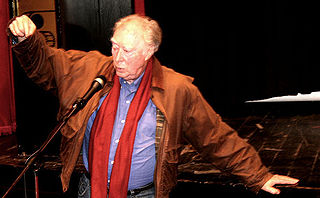A Quote by Paul Singer
In government, the forces of risk-aversion and constant conflict serve to stultify and narrow the range of ideas up for debate.
Related Quotes
I think the government must recognise that the wounds of conflict are even more grievous on the mind than the body, and indeed may even serve to fuel further conflict. Where conflict cannot be avoided, provision of adequate psychosocial services to prevent the adverse mental health consequences should take priority.
If we are to include the outer and the inner struggle in a conception more definite than that of conflict in general, we must employ some such phrase as 'spiritual force.' This will mean whatever forces act in the human spirit, whether good or evil, whether personal passion or impersonal principle; doubts, desires, scruples, ideas-whatever can animate, shake, possess, and drive a man's soul. [19]In a Shakespearean tragedy some such forces are shown in conflict.
But what is now encompassed by the one word (“school”) are two very different kinds of institutions that, in function, finance and intention, serve entirely different roles. Both are needed for our nation’s governance. But children in one set of schools are educated to be governors; children in the other set of schools are trained for being governed. The former are given the imaginative range to mobilize ideas for economic growth; the latter are provided with the discipline to do the narrow tasks the first group will prescribe.
To laugh is to risk appearing a fool. To weep is to risk appearing sentimental. To reach out to another is to risk involvement. To expose feelings is to risk exposing your true self. To place your ideas and dreams before a crowd is to risk their loss. To love is to risk not being loved in return. To hope is to risk pain. To try is to risk failure. But risks must be taken, because the greatest hazard in life is to risk nothing.
Look, this debate is basic: it's small government vs. big government. So how cowardly do folks like Blood and Frank Rich have to be that they can't man up and defend their love for collectivism? The only reason they scream race, is because that debate scares them. They know a racial accusation prevents dialogue, because such a harmful charge far outweighs any benefits of winning an argument.



































